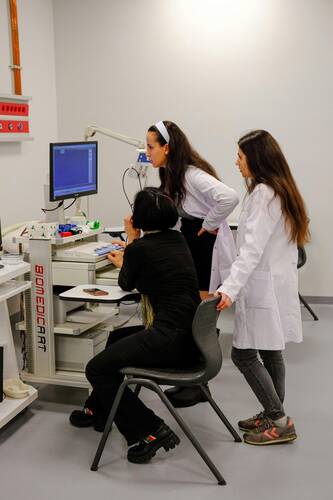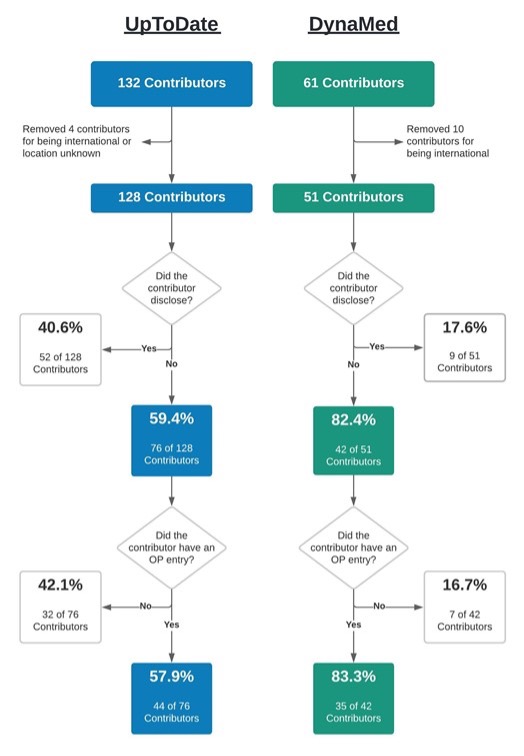The healthcare industry is constantly evolving, from treatment methods to medical equipment and systems. In this regard, health professions educators...
Advancements in technology, surgical tools, and techniques mean the field of surgery is in constant evolution. Training, as the foundation for preparing medical professionals, has to adapt quickly to meet these changes. Modern training programs prioritize the understanding of surgical tools, patient safety, and interdisciplinary collaboration, as well as skill acquisition.
Technology-driven training
One of the most notable shifts in surgical training has been the integration of advanced technology. High-fidelity surgical simulators allow trainees to practice procedures in a risk-free environment that mimic real-world scenarios. These virtual and augmented reality platforms replicate human anatomy and enable surgeons to refine their skills before entering the operating room.
Robotics has also become a part of surgical training. Robotic systems like the da Vinci Surgical System require specific knowledge and dexterity to operate. Training programs include dedicated modules to help residents learn about these systems. Surgeons can interact with these technologies early in their careers so that they’re well equipped for the demands of their roles.
Modern surgical tools
A thorough understanding of surgical tools is also important for aspiring surgeons. As tools become more specialized and sophisticated, familiarity with their applications becomes essential. Instruments like the retractors from June Medical allows surgeons more stability and control. By learning how to incorporate such tools into procedures, trainers can improve their efficiency and outcomes. The focus on tool-specific training reflects an appreciation of procedural dynamics and reduces the likelihood of complications.
(more…)
Education, Nursing, Technology / 10.01.2025
Opportunities and Challenges in Online Healthcare Education
Key Takeaways
- Online healthcare education offers flexibility for students to balance work and studies.
- Technological advancements are enhancing virtual learning experiences.
- Accreditation is crucial in choosing a reputable online program.
- Affordability and financial aid can significantly impact student decisions.
- There are challenges in maintaining practical hands-on training in virtual scenarios.
The Rise of Online Healthcare Education
The landscape of education has radically transformed with the advent of online learning platforms. In many fields, particularly healthcare, the demand for qualified professionals continues to grow, prompting numerous educational institutions to offer online nursing programs. These programs are meticulously designed to offer the same quality and depth of education as their traditional counterparts while providing students with the flexibility to learn at their convenience. Geographic barriers are dissolving as students can now attend lectures from the other side of the world, fostering a global educational community. This democratization of education ensures that learners from diverse backgrounds can access top-quality instruction, irrespective of their location. With the pandemic further accelerating the adoption of online education, it is clear that this modality is not just a temporary trend but a permanent shift in the educational paradigm. (more…)
Biology is often described as the science of life, but for many students in the UK, mastering its concepts can feel anything but lively. Most students find biology particularly challenging, especially when faced with dense topics like molecular genetics, cell biology, or the intricacies of the human body. This struggle can lead to frustration and even anxiety as exams approach.
If you’re one of these students, you’re not alone. The good news is that biology doesn’t have to be overwhelming. With the right strategies, you can turn what feels complex into something manageable—and even enjoyable. This article explores proven techniques to help you break down, understand, and retain biology concepts so you can boost your confidence and achieve your academic goals.
Ask for Help When You Need It
When tackling challenging biology topics, personalised support can make a world of difference. Online tutoring offers a tailored learning experience that addresses your unique needs and goals. These experts specialise in one-on-one online tutoring, making them an excellent option for students. These experienced biology tutoring professionals possess an in-depth understanding of the subject. They can help you prepare for exams, work through difficult concepts, and enhance your overall understanding of biology. Whether you’re aiming to grasp fundamental topics or require advanced guidance, their personalised approach ensures that every session is tailored to your requirements. Online tutoring provides the flexibility to learn at your own pace and schedule. This allows you to focus on areas where you need the most support, boosting your confidence and helping you achieve your academic goals. With expert guidance, even the most complex biology topics can become manageable. Look up biology tutoring UK to learn more. (more…)
Education, Electronic Records, Technology / 06.09.2024
Can Medical Education Benefit from EHR Systems Integration?
As we stand today, EHR systems are not a part of the medical curricula. But med students go on to work in hospitals or start their own practice that would definitely involve EHR systems. According to the Office of the National Coordinator for Health Information Technology (ONC), 96% of hospitals use EHR systems, which is almost the entirety of the healthcare setup.
Integrating Electronic Health Records (EHR) into medical education can have several benefits for prepping future healthcare professionals. This approach can potentially make learning better for medical students and ultimately boost patient care quality.
Moreover, specialized areas like cardiology medical billing could benefit significantly from early exposure to EHR systems, helping students understand the intricacies of managing billing in these complex fields.
This article covers the potential benefits of EHR systems integration into medical education, challenges, solutions, and more.
Key Takeaways:
- Integrating EHRs makes learning better for medical students.
- Improves doctor-patient communication.
- Offers easy access and better organization for students.
- Tackles challenges related to documentation and professionalism.
- Hands-on experience and simulation training are key for effective learning.
- Hospital policies and liability concerns can limit EHR access.
- Proper educational frameworks are crucial for successful EHR adoption.
- EHRs contain real-world scenarios and promote understanding of clinical workflows.
For nurses, managing the demands of their profession while taking care of their own well-being can be a significant challenge. Long hours, high stress, and emotional demands can take a toll, making self-care an essential component of their routine. This article explores practical self-care strategies tailored for nurses on the go, offering advice on maintaining physical health, mental clarity, and emotional stability. By integrating these practices into their daily lives, nurses can enhance their resilience and provide the best care for their patients while also taking care of themselves.
Prioritizing Physical Health
Physical health is the foundation of a nurse's ability to perform their duties. Regular exercise, even in short bursts, can significantly improve physical stamina and overall health. Simple activities like taking the stairs instead of the elevator, a quick walk during breaks, or stretching exercises can be integrated into a busy schedule. Proper nutrition is also crucial; packing healthy snacks such as fruits, nuts, and yogurt can help sustain energy throughout long shifts. Staying hydrated is equally important, as dehydration can lead to fatigue and decreased cognitive function. In addition to maintaining an active lifestyle and healthy eating habits, regular health checkups are vital for nurses to monitor their overall well-being. Routine screenings can help identify potential issues early, such as high blood pressure or vitamin deficiencies, which are common among healthcare professionals due to demanding schedules. According to this dentist in Virginia Beach VA, scheduling annual physicals and dental visits ensures that nurses remain in optimal health to meet the physical and mental demands of their profession (more…)
Health Care Systems, Mental Health Research / 21.05.2024
Leading with Empathy in the Healthcare Sector
In the fast-paced world of healthcare, where clinical skills and knowledge are paramount, the power of empathy in leadership can sometimes be overlooked. However, leading with empathy in the healthcare sector is not just a nice-to-have quality; it's a pivotal trait that can shape patient outcomes, staff satisfaction, and the overall healthcare environment. This article delves into why empathy is crucial in healthcare leadership, supported by real-world insights and strategies to foster a culture of empathy.
 As technology continues to evolve within the healthcare sector, creating new opportunities for enhancing patient care, it's crucial that empathy doesn't get lost in the shuffle. Innovative tools and systems should be seen as avenues to deepen our understanding and connection with patients, rather than as barriers to the human touch. Embracing technology with empathetic intention can lead to an even greater level of personalized care.
One specific area where empathy can play a transformative role is in addressing HR challenges in behavioral health. Understanding the unique nature of these challenges, and the emotional toll they can take on staff, is crucial for leaders who strive to create a supportive work environment. This deeper understanding can drive the implementation of effective solutions, fostering a workplace where empathy and professionalism thrive together.
(more…)
As technology continues to evolve within the healthcare sector, creating new opportunities for enhancing patient care, it's crucial that empathy doesn't get lost in the shuffle. Innovative tools and systems should be seen as avenues to deepen our understanding and connection with patients, rather than as barriers to the human touch. Embracing technology with empathetic intention can lead to an even greater level of personalized care.
One specific area where empathy can play a transformative role is in addressing HR challenges in behavioral health. Understanding the unique nature of these challenges, and the emotional toll they can take on staff, is crucial for leaders who strive to create a supportive work environment. This deeper understanding can drive the implementation of effective solutions, fostering a workplace where empathy and professionalism thrive together.
(more…)
The Impact of Technological Advancements
 As technology continues to evolve within the healthcare sector, creating new opportunities for enhancing patient care, it's crucial that empathy doesn't get lost in the shuffle. Innovative tools and systems should be seen as avenues to deepen our understanding and connection with patients, rather than as barriers to the human touch. Embracing technology with empathetic intention can lead to an even greater level of personalized care.
One specific area where empathy can play a transformative role is in addressing HR challenges in behavioral health. Understanding the unique nature of these challenges, and the emotional toll they can take on staff, is crucial for leaders who strive to create a supportive work environment. This deeper understanding can drive the implementation of effective solutions, fostering a workplace where empathy and professionalism thrive together.
(more…)
As technology continues to evolve within the healthcare sector, creating new opportunities for enhancing patient care, it's crucial that empathy doesn't get lost in the shuffle. Innovative tools and systems should be seen as avenues to deepen our understanding and connection with patients, rather than as barriers to the human touch. Embracing technology with empathetic intention can lead to an even greater level of personalized care.
One specific area where empathy can play a transformative role is in addressing HR challenges in behavioral health. Understanding the unique nature of these challenges, and the emotional toll they can take on staff, is crucial for leaders who strive to create a supportive work environment. This deeper understanding can drive the implementation of effective solutions, fostering a workplace where empathy and professionalism thrive together.
(more…)
If you're seeking a career change with a meaningful impact, transitioning to nursing offers the opportunity to make a tangible difference in people's lives. Nursing is a calling that allows you to play a vital role in the healthcare system, providing care to those in need.
Considering the demand for healthcare professionals, it's vital to acknowledge the critical role nurses play in meeting healthcare needs effectively. The healthcare industry is continuously evolving, with an increasing emphasis on preventive care, chronic disease management, and patient-centered approaches. Thus, the increasing demand for skilled nurses in diverse specialties offers abundant opportunities for career entry and advancement in the field.
According to research by McKinsey, the United States is anticipated to face an acute nursing shortage in the coming years. The study predicts a shortage of 200,000 to 450,000 nurses in the nation by 2025. Such a massive demand must be met by new nurses to maintain the efficient workflow of the healthcare industry. Moreover, this trend acts as a strong catalyst for many individuals to enter the nursing profession.
This blog will explore the factors that motivate individuals to pursue a career in nursing.
(more…)
This article is for informational purposes only and is not a substitute for professional medical advice, diagnosis or treatment. Contact a qualified medical professional before engaging in any physical activity, or making any changes to your diet, medication or lifestyle,
Navigating the broad universe of medicine resembles finding a path in a maze. Picking the right medical specialization is crucial for both professional growth and personal fulfillment. Medicine's field is varied, each having distinct challenges and benefits, thus making this decision crucial.
 Understanding oneself is vital before exploring medical fields. What are your unique interests? Which medical areas spark your enthusiasm? It's common to advise students to reflect on their likes and dislikes in various subjects. To save some time, you might hire an EssayPro to lessen your workload. This could enlighten you about your abilities and preferences.
Each medical field has specific requirements. A surgeon may have unpredictable hours and stressful situations, while a dermatologist may have more set hours. Understanding the work-life balance you desire can affect your choice.
Visualizing your future is essential. Where do you want to be in the next decade or two? Whether in a busy hospital emergency room, a peaceful research laboratory, or a community clinic, your long-term goals can guide your current choices.
(more…)
Understanding oneself is vital before exploring medical fields. What are your unique interests? Which medical areas spark your enthusiasm? It's common to advise students to reflect on their likes and dislikes in various subjects. To save some time, you might hire an EssayPro to lessen your workload. This could enlighten you about your abilities and preferences.
Each medical field has specific requirements. A surgeon may have unpredictable hours and stressful situations, while a dermatologist may have more set hours. Understanding the work-life balance you desire can affect your choice.
Visualizing your future is essential. Where do you want to be in the next decade or two? Whether in a busy hospital emergency room, a peaceful research laboratory, or a community clinic, your long-term goals can guide your current choices.
(more…)
Self-Assessment and Introspection
 Understanding oneself is vital before exploring medical fields. What are your unique interests? Which medical areas spark your enthusiasm? It's common to advise students to reflect on their likes and dislikes in various subjects. To save some time, you might hire an EssayPro to lessen your workload. This could enlighten you about your abilities and preferences.
Each medical field has specific requirements. A surgeon may have unpredictable hours and stressful situations, while a dermatologist may have more set hours. Understanding the work-life balance you desire can affect your choice.
Visualizing your future is essential. Where do you want to be in the next decade or two? Whether in a busy hospital emergency room, a peaceful research laboratory, or a community clinic, your long-term goals can guide your current choices.
(more…)
Understanding oneself is vital before exploring medical fields. What are your unique interests? Which medical areas spark your enthusiasm? It's common to advise students to reflect on their likes and dislikes in various subjects. To save some time, you might hire an EssayPro to lessen your workload. This could enlighten you about your abilities and preferences.
Each medical field has specific requirements. A surgeon may have unpredictable hours and stressful situations, while a dermatologist may have more set hours. Understanding the work-life balance you desire can affect your choice.
Visualizing your future is essential. Where do you want to be in the next decade or two? Whether in a busy hospital emergency room, a peaceful research laboratory, or a community clinic, your long-term goals can guide your current choices.
(more…)
Author Interviews, Education, JAMA, Race/Ethnic Diversity, Yale / 01.08.2023
Alarming Rate of Attrition Among Black MD-PhD Students
MedicalResearch.com Interview with:
Mytien Nguyen, MS
Department of Immunobiology,
Yale School of Medicine
New Haven, Connecticut
MedicalResearch.com: What is the background for this study?
Response: Physician-scientists are critical for innovative translational research. Combined MD-PhD training programs are essential for developing physician-scientists. Although racial and ethnic diversity of MD-PhD matriculants has increased over the past decade, little is known about how attrition rates differ by race and ethnicity.
(more…)
Author Interviews, Education, JAMA, Race/Ethnic Diversity, Social Issues, Yale / 15.07.2022
Medical School Drop-Out Rates Highest Among Low Income Students from Marginalized Neighborhoods
MedicalResearch.com Interview with:
Mytien Nguyen, MS
MD-PhD Program, Yale School of Medicine,
New Haven, Connecticut
MedicalResearch.com: What is the background for this study?
Response: It is well-recognized that diversity in the medical workforce is critical to improve health care access and achieve equity for neglected communities. Despite increased efforts to recruit diverse medical trainees, there remains a large chasm between the racial/ethnic and socioeconomic composition of the patient population and that of the physician workforce.
(more…)
Author Interviews, Education, JAMA, Pharmaceutical Companies / 06.07.2022
Geisinger Study Found 79 Physician Contributors to UpToDate and DynaMed with Potential Conflicts of Interest of Nearly $8 Million
MedicalResearch.com Interview with:
SooYoung VanDeMark, MBS
Geisinger Commonwealth School of Medicine
Scranton, Pennsylvania
MedicalResearch.com: What is the background for this study?
Response: Health care providers utilize subscription-based, point-of-care databases such as DynaMed and UpToDate to provide clinical care guidance and remain current on the latest evidence-based findings. Both of these websites maintain this content through a cadre of physician contributors who write and edit articles for these sites. These physician contributors are required to self-report any conflicts of interest (COI) as outlined by the respective policies on each website. However, prior COI research into similarly self-regulated areas, such as medical and pharmacology textbooks, and clinical practice guidelines, has found both appreciable potential COI and inconsistencies between self-reported and industry mandated disclosures (1-3).
This study (4) explored the accuracy of physician contributors to DynaMed and UpToDate by comparing their self-reported disclosure status with the financial remunerations they received from the healthcare industry (e.g., pharmaceutical companies) as reported to the U.S. Centers for Medicare and Medicaid Services’ Open Payments database. Physician contributors who reported “nothing to disclose” on their respective article topic but had an entry on Open Payments for having received money from industry, were classified as discordant and, thus, as having the potential for a COI. Additionally, total remuneration, gender, and payment category were investigated more in depth for each database.
(more…)
Author Interviews, Education, JAMA, Surgical Research, Technology / 22.03.2022
Medical Students Sucessfully Acquired Surgical Skills with AI Tutoring
MedicalResearch.com Interview with:
Ali M. Fazlollahi, MSc, McGill Medicine Class of 2025
Neurosurgical Simulation and Artificial Intelligence Learning Centre
Department of Neurology and Neurosurgery, Montreal Neurological Institute and Hospital
Faculty of Medicine and Health Sciences
McGill University, Montreal, Canada
MedicalResearch.com: What is the background for this study?
Response: COVID-19 disrupted hands on surgical exposure of medical students and academic centres around the world had to quickly adapt to teaching technical skills remotely. At the same time, advances in artificial intelligence (AI) allowed researchers at the Neurosurgical Simulation and Artificial Intelligence Learning Centre to develop an intelligent tutoring system that evaluates performance and provides high-quality personalized feedback to students. Because this is the first AI system capable of providing surgical instructions in simulation, we sought to evaluate its effectiveness compared with learning from expert human instructors who provided coaching remotely.
(more…)
Author Interviews, Education, JAMA, Race/Ethnic Diversity, Social Issues / 15.03.2022
Higher Income Students Overrepresented in Medical Schools
MedicalResearch.com Interview with:
 Arman A. Shahriar
Medical Student, University of Minnesota Medical School Research
Consultant, HealthPartners Institute
Minneapolis, Minnesota
Arman A. Shahriar
Medical Student, University of Minnesota Medical School Research
Consultant, HealthPartners Institute
Minneapolis, Minnesota
Author Interviews, Education, Medical Imaging, Technology / 13.08.2021
Temple First Year Med Students Provided with Butterfly iQ Point-of-Care Ultrasound Device
MedicalResearch.com Interview with:
Ryan C. Gibbons, MD, FAAEM, FACEP
Associate Professor of Emergency Medicine
Director of the Emergency Ultrasound Fellowship
Associate Director of the Division of Emergency Ultrasound
Department of Emergency Medicine
Director of Ultrasound in Medical Education
Lewis Katz School of Medicine at Temple University
MedicalResearch.com: What is the background for this study? How was the gift funded?
 Response: Point-of-care ultrasound is one of the most significant advances in bedside patient care, and its use is expanding across nearly all fields of medicine. In order to best prepare medical students for residency and beyond, it is imperative to begin POCUS training as early as possible. At the Lewis Katz School of Medicine at Temple University, we introduced POCUS education over a decade ago and have expanded it since then.
By providing each student with a Butterfly iQ device, we can augment our curriculum significantly. In addition to our robust pre-clinical sessions, now we will expand into the clinical years highlighting the utility of POCUS with actual patients.
This gift was made possible by the incredible generosity of Dr. Ronald Salvitti, MD ’63. (more…)
Response: Point-of-care ultrasound is one of the most significant advances in bedside patient care, and its use is expanding across nearly all fields of medicine. In order to best prepare medical students for residency and beyond, it is imperative to begin POCUS training as early as possible. At the Lewis Katz School of Medicine at Temple University, we introduced POCUS education over a decade ago and have expanded it since then.
By providing each student with a Butterfly iQ device, we can augment our curriculum significantly. In addition to our robust pre-clinical sessions, now we will expand into the clinical years highlighting the utility of POCUS with actual patients.
This gift was made possible by the incredible generosity of Dr. Ronald Salvitti, MD ’63. (more…)
 Response: Point-of-care ultrasound is one of the most significant advances in bedside patient care, and its use is expanding across nearly all fields of medicine. In order to best prepare medical students for residency and beyond, it is imperative to begin POCUS training as early as possible. At the Lewis Katz School of Medicine at Temple University, we introduced POCUS education over a decade ago and have expanded it since then.
By providing each student with a Butterfly iQ device, we can augment our curriculum significantly. In addition to our robust pre-clinical sessions, now we will expand into the clinical years highlighting the utility of POCUS with actual patients.
This gift was made possible by the incredible generosity of Dr. Ronald Salvitti, MD ’63. (more…)
Response: Point-of-care ultrasound is one of the most significant advances in bedside patient care, and its use is expanding across nearly all fields of medicine. In order to best prepare medical students for residency and beyond, it is imperative to begin POCUS training as early as possible. At the Lewis Katz School of Medicine at Temple University, we introduced POCUS education over a decade ago and have expanded it since then.
By providing each student with a Butterfly iQ device, we can augment our curriculum significantly. In addition to our robust pre-clinical sessions, now we will expand into the clinical years highlighting the utility of POCUS with actual patients.
This gift was made possible by the incredible generosity of Dr. Ronald Salvitti, MD ’63. (more…)
Author Interviews, Education, JAMA / 20.07.2021
Racial Disparities in How Students Pay For Medical School
MedicalResearch.com Interview with:
Arman Shahriar
Medical Student
University of Minnesota Medical School Research Consultant
HealthPartners Institute
MedicalResearch.com: What is the background for this study? What are the main findings? & What should readers take away from your report?
Response: Financing medical school is an opaque and important topic because the cost of attendance of medical school has risen much faster than inflation for decades. Over the same time period, the racial wealth gap has widened. We found significant differences in how students of different socioeconomic and racial/ethnic backgrounds are planning to pay for medical school at the time of matriculation. Family or personal financing is far more common for high-income students. Among Black students, family or personal financing was markedly lower than other racial/ethnic groups, which could be a reflection of the wealth gap - which is rooted in structural racism.
This may create educational disparities as the field becomes increasingly racially, ethnically, and socioeconomically diverse; there are many costs outside of tuition and living that may be considered "variable" or "non-essential" but necessary for high-quality education, including expensive board prep materials and transportation during clinical rotations. Furthermore, the stark deficit in family financing may be one reason why Black students currently report the highest debt burden of all racial/ethnic groups.
(more…)
















